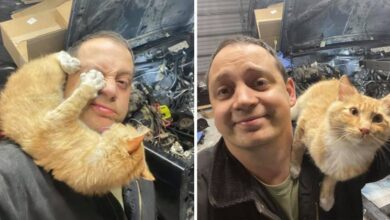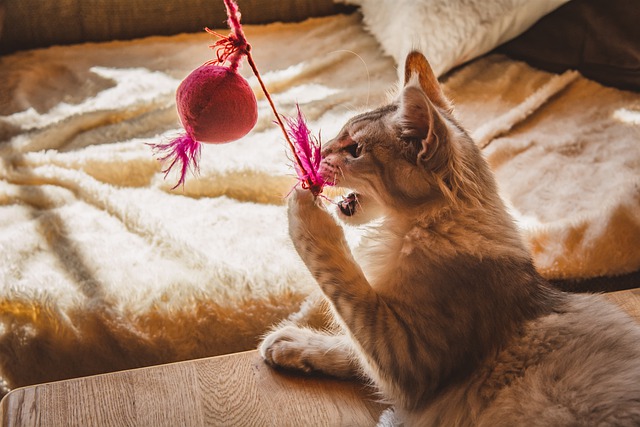
We all know that our ears are very important to us. For cats, ears are also an important part of their survival. Indeed, most cats are now indoor cats and their hunting is limited to finding the catnip mouse that hides under the couch, but ear health is still important.
A cat’s ears are mobile, they can turn in many ways, they can hear ultrasonic (high-pitched) sounds that we can’t even imagine hearing, and they can hear these sounds in 10 different tones. The cat’s hearing is a protection against danger and a warning of approaching prey, which in the wild was a form of self-preservation.
Cats do not have many ear diseases that result in hearing loss; however, they do have ear problems that cause them a great deal of discomfort. Most ear problems begin with the same signs of discomfort, namely ear twitching, scratching of the ears, rubbing of the ears on the floor, walking with the head tilted to the side, and a particular odor coming from the ears.
What problems can a cat face?
Ear mites are one of the most common diseases in cats. Ear mites are contagious and can drive a cat crazy.
Mites love the warm, cozy recesses of the dark ear canal. They pierce the skin inside the ear to feed and multiply very quickly. The itching is intense. The mites tend to look like coffee grounds in the cat’s ear or crumbly dirt. If your eyes are sharp and you have a magnifying glass, you may be able to see tiny white mites, about the size of a pinhead, moving around.
Ear mites are very contagious and can create bacterial infections due to the cat scratching the skin. If you have other pets (cats or dogs), the mites can be transmitted to all of them, so all pets should be treated. Humans, however, are immune to them.
To truly treat ear mites, ear drops alone are not enough. Mites, like all living things, have the desire to fight for survival and that means they will find somewhere else to go once the ear drops are placed in the ears. The mites will leave the ear once the drops are instilled and go to the tail and head area to set up camp until the effect of the drops wears off, then they will return to the ear.
An effective way to treat mites is to use prescribed ear drops and a medication that treats the parasites throughout the body. It is important to rid the body of mites and other parasites to ensure a complete cure.
Believe it or not, allergies can create ear problems. What is an allergy? It is the immune system’s reaction to substances that the body considers unacceptable. Allergic ear disease in cats is not the most common condition in cats, as is allergic ear disease in dogs, but it does cause problems.
If you see your cat scratching on the side of its forehead, just in front of the ears, this is a common sign of allergies in cats. Cats can be allergic to environmental conditions such as pollen, grass, weeds, and dust mites. Food can also cause an allergic reaction. If you have started feeding your cat a new food and she suddenly starts scratching, she may be allergic to something in the new food.
The cat must be tested for allergic reactions. If possible, a veterinary dermatologist should be consulted for accurate results. Specific allergies can be demonstrated simply by injecting small amounts of the suspect substance into the skin. A veterinary dermatologist can interpret the reactions and determine the cause.
Unfortunately, it is not simply a matter of taking a blood sample, sending it to a lab, and getting a report. The best way to get rid of the allergy is to eliminate the substance from the cat’s life. When this is not possible, then in mild cases it is necessary to give the cat antihistamines and essential fatty acid supplements. Severe cases will require cortisone injections or tablets to help control the itching. This whole procedure requires frequent visits to the veterinarian and a careful eye, as side effects, which differ from cat to cat, must be considered.
Older cats may suffer from polyps and tumors inside the ear canal. Older cats seem to have more problems with tumors in the ear than dogs. Tumors are more likely to occur in the external ear canal and may be related to the gland that produces earwax or to any other part of the ear within the ear canal.
These tumors are more likely to be malignant than benign, and in either case, they can grow large enough to block the ear canal. They can be surgically removed and then treated, if cancerous, with radiation therapy. Successful treatment depends on when the problem is detected, the earlier the better.
Clean and care for your cat’s ears.
It’s a good idea to look inside your cat’s ears at least once a week. If they look dirty, wipe them with a cotton swab moistened with warm water or a solution recommended by your veterinarian. Do not, and I repeat, do not use a cotton swab to dig into your cat’s ear, no deeper than your first knuckle.
It is also advisable to smell the ear. If you smell something strange, I suggest you go to the vet quickly for a little investigation. A cat’s ear should not smell for any reason and a sign of odor is a sign that something is wrong.
If your cat needs medication to put in his ear. Put in the necessary drops, fold the ear back, and rub the medicine in gently. This should make it sound a little spongy. I also recommend that you stand back once you let go of the ear, as your cat will want to shake his head and some of the medicine may fall on you.
This is a medical treatment that cats don’t seem to mind, as most cats like to have their ears played with, and if your cat has an itchy ear, she should enjoy the treatment.
The best suggestion I can give you is to do what I do with my cats: I check their ears almost every day, mainly because they like having their ears rubbed and handled. I think it reminds them that mama cats used to clean their ears when they were kittens.
I would also suggest that if you see your cat suddenly scratching his head or ears, just for fun, to get to the vet quickly, whatever the problem is, it can be nipped in the bud and save you a lot of money. I firmly believe that an ounce of prevention (quick vet visit) can save you a lot of money in the long run.
Good hearing is just as important for your cat as it is for you, so take care of her ears.






